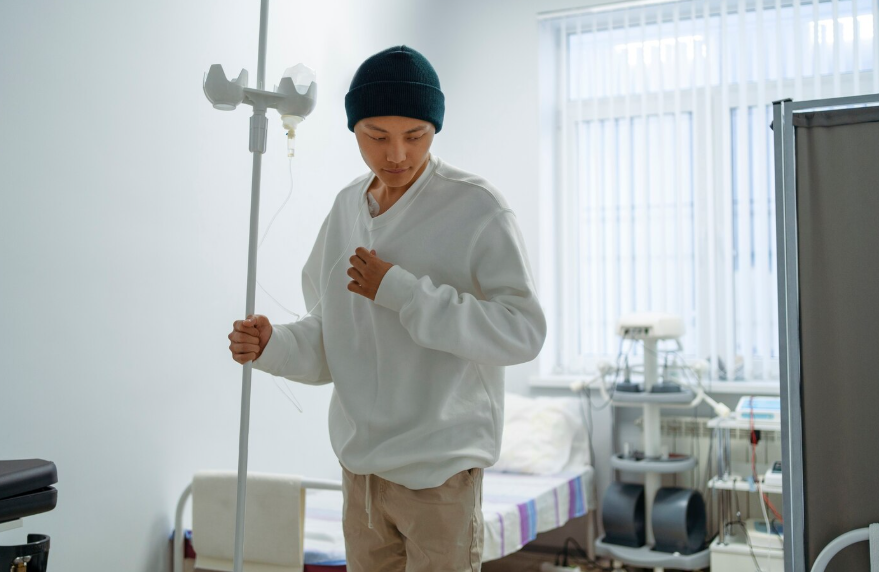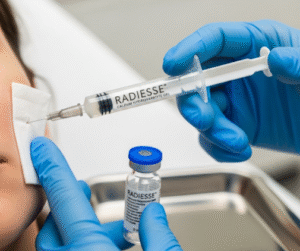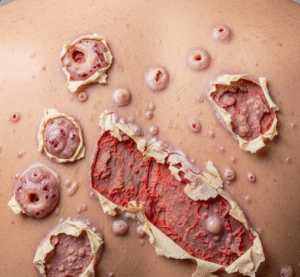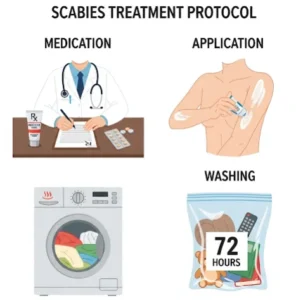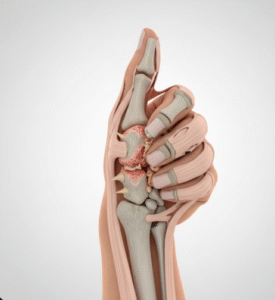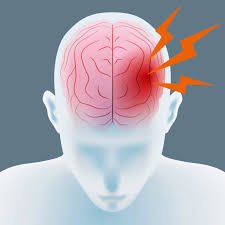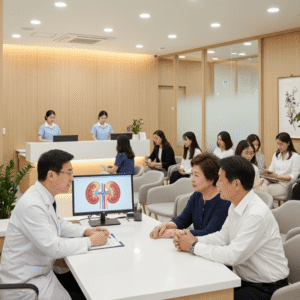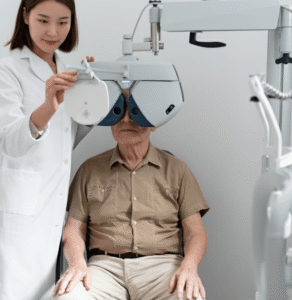Overview
Guillain-Barré Syndrome (GBS) is a rare autoimmune disorder in which the body’s immune system attacks the peripheral nerves, leading to muscle weakness and, in severe cases, paralysis. While the condition can occur at any age, it often follows an infection such as respiratory or gastrointestinal illness. In Korea, advanced hospitals provide specialized neurology care, including rapid diagnosis, intensive monitoring, and treatment options to improve recovery and reduce complications.
Symptoms
Symptoms typically progress over hours to weeks and may include:
- Tingling or numbness in the fingers, toes, or limbs
- Weakness starting in the legs and spreading to the arms and upper body
- Difficulty walking or climbing stairs
- Loss of reflexes
- Facial weakness or difficulty speaking, chewing, or swallowing
- Severe cases may involve respiratory muscle weakness requiring ventilatory support
- Autonomic dysfunction (blood pressure fluctuations, irregular heart rate)
Causes
GBS is triggered by an abnormal immune response, often after an infection. Common causes include:
- Recent respiratory or gastrointestinal infection
- Campylobacter jejuni bacterial infection
- Influenza or other viral infections
- Rarely, following vaccination or surgery
Risk Factors
- Recent infection within 1–4 weeks before symptom onset
- Older age (risk increases with age)
- Male gender
- Certain autoimmune disorders
- Family history is rarely a direct risk factor, but genetic susceptibility may play a role
Diagnosis
In Korea, GBS is diagnosed through a combination of clinical evaluation and tests:
- Neurological examination to assess muscle strength and reflexes
- Lumbar puncture to analyze cerebrospinal fluid for elevated protein levels
- Electromyography (EMG) and nerve conduction studies to evaluate nerve function
- Blood tests to rule out other causes of weakness
- Imaging may be performed to exclude spinal cord disorders
Prevention
There is no guaranteed way to prevent GBS, but the following measures may reduce risk:
- Prompt treatment of infections
- Maintaining good hygiene to prevent gastrointestinal and respiratory infections
- Careful monitoring after vaccinations or surgery, although the risk is extremely low
- Early medical evaluation for persistent weakness, tingling, or neurological symptoms
Treatment Options in Korea
Korean hospitals provide advanced multidisciplinary care for GBS:
- Immunotherapy
- Intravenous immunoglobulin (IVIG) to reduce immune attack on nerves
- Plasmapheresis (plasma exchange) to remove harmful antibodies
- Supportive Care
- Hospitalization in intensive care units for severe cases
- Mechanical ventilation if respiratory muscles are affected
- Pain management for neuropathic pain
- Physical therapy to maintain muscle strength and prevent complications
- Rehabilitation
- Long-term physiotherapy and occupational therapy
- Monitoring for residual weakness, fatigue, and mobility issues
- Psychological support to cope with prolonged recovery
Prognosis
Most patients in Korea recover fully or partially over weeks to months, although some may experience long-term weakness or fatigue. Early diagnosis and timely treatment improve outcomes significantly. Severe cases requiring ventilatory support may have a longer recovery period, but advanced care in Korean hospitals ensures close monitoring and comprehensive management to maximize functional recovery.

